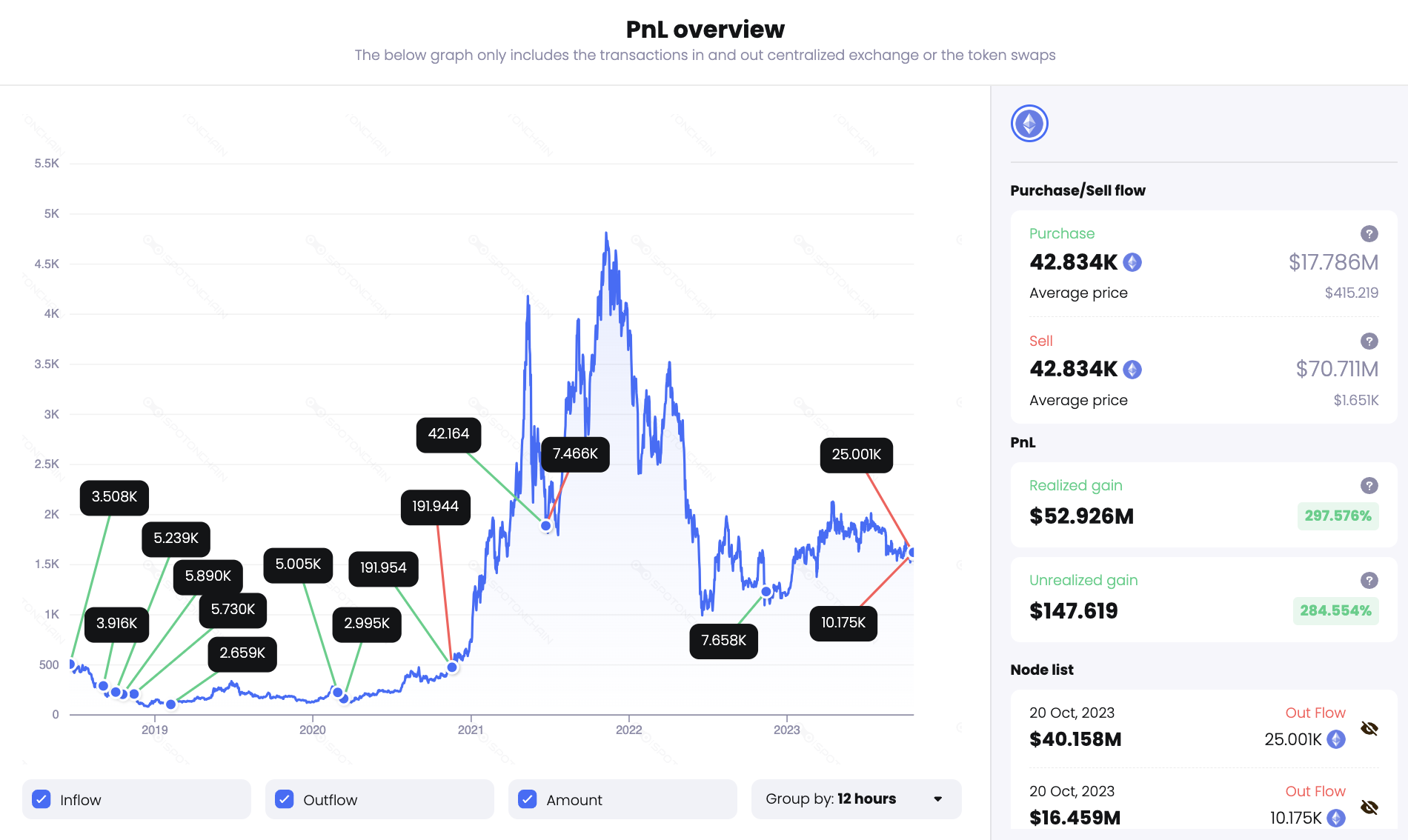OpenAI's ChatGPT: The FTC Investigation And Its Impact

Table of Contents
The FTC's Concerns Regarding ChatGPT
The FTC's investigation into ChatGPT likely stems from several key areas of concern regarding the responsible development and deployment of AI technologies. These concerns are not unique to ChatGPT but highlight broader issues within the AI industry that require careful consideration.
Data Privacy and Security
A primary focus of the FTC's investigation is likely how ChatGPT handles user data, especially sensitive personal information. Concerns include potential violations of data privacy regulations like COPPA (Children's Online Privacy Protection Act) and GDPR (General Data Protection Regulation). The sheer volume of data processed by ChatGPT, and the potential for this data to be misused, presents a significant challenge.
- Insufficient data security measures leading to data breaches: The risk of unauthorized access to user data is a critical concern. Robust security protocols are essential to protect sensitive information.
- Lack of transparency regarding data collection and usage practices: Users need clear and concise information about what data is being collected, how it's being used, and with whom it might be shared. OpenAI's data practices must meet the highest standards of transparency.
- Potential for unauthorized data sharing with third parties: The investigation will likely scrutinize OpenAI's agreements and partnerships to ensure that user data is not shared inappropriately. Data minimization and purpose limitation principles are central to data privacy best practices.
Algorithmic Bias and Discrimination
ChatGPT, like many AI models, is trained on massive datasets that may reflect existing societal biases. This can lead to the AI perpetuating or even amplifying harmful stereotypes, resulting in discriminatory outcomes. The FTC might investigate whether ChatGPT's responses demonstrate such bias, and whether OpenAI has taken sufficient steps to mitigate these risks.
- Bias in ChatGPT's responses related to gender, race, religion, etc.: The AI's output should be carefully examined for any evidence of bias that could harm individuals or groups.
- Potential for the AI to generate harmful or offensive content: The ability of ChatGPT to produce such content is a serious concern, especially considering the potential for its misuse. Safety mechanisms are crucial.
- Lack of mechanisms to mitigate or address algorithmic bias: OpenAI needs to demonstrate proactive efforts to identify and address bias within its algorithms, perhaps through ongoing audits and improvements to its training data.
Misinformation and the Spread of Falsehoods
ChatGPT's ability to generate convincingly realistic, yet factually inaccurate information is a significant concern. Its potential for misuse in spreading misinformation and disinformation campaigns is a major focus of the FTC's investigation. The ability to create convincing fake news articles is a particular area of concern.
- ChatGPT's capability to create realistic-sounding fake news articles: This capability needs to be carefully controlled to prevent the spread of false narratives.
- Potential for malicious actors to exploit ChatGPT for disinformation campaigns: The potential for abuse by bad actors is significant and necessitates robust safeguards.
- Insufficient safeguards to prevent the generation of harmful or misleading content: OpenAI must implement measures to detect and prevent the generation of content that could be used to deceive or harm others. This might include fact-checking mechanisms and content moderation policies.
Potential Outcomes of the FTC Investigation
The FTC investigation into ChatGPT could have several significant consequences for OpenAI and the broader AI landscape:
Financial Penalties
OpenAI could face substantial fines for violations of privacy laws or other regulations. The scale of any penalties would depend on the severity of the violations found.
Regulatory Changes
The investigation may lead to new regulations or guidelines for the development and deployment of AI chatbots, potentially impacting the entire industry. This could involve stricter data handling requirements and increased transparency mandates.
Changes to ChatGPT's Functionality
OpenAI may be required to implement changes to ChatGPT's algorithms or data handling practices to address the FTC's concerns. This could involve improving data security, mitigating bias, and enhancing safeguards against misinformation.
Reputational Damage
Even if no significant penalties are imposed, the investigation could damage OpenAI's reputation and trust among users, impacting its future growth and development.
Implications for the Future of AI Development
The FTC's investigation sets a precedent for future oversight of AI technologies. It underscores the crucial need for responsible AI development, prioritizing ethical considerations and user safety from the outset.
- The investigation highlights the importance of incorporating ethical considerations throughout the entire AI lifecycle, from data collection to deployment and monitoring.
- It necessitates a more rigorous approach to detecting and mitigating bias in AI systems, moving beyond simple mitigation strategies towards more fundamental changes in data and algorithms.
- It will likely accelerate the development of better methods for detecting and mitigating bias in AI systems, including the exploration of more diverse and representative training datasets and fairness-aware algorithms.
Conclusion
The FTC's investigation into OpenAI's ChatGPT represents a crucial moment for the future of artificial intelligence. The potential outcomes – from financial penalties to significant regulatory changes – underscore the importance of responsible AI development and deployment. The investigation emphasizes the need for greater transparency, robust data protection measures, and effective mechanisms to address algorithmic bias and misinformation. Moving forward, understanding the implications of the FTC's investigation on ChatGPT and similar AI technologies is paramount. Staying informed about the evolving regulatory landscape surrounding ChatGPT is crucial for both developers and users. We must continue to engage in critical conversations about the ethical considerations surrounding AI, ensuring that these powerful technologies are developed and used responsibly. Understanding the potential risks and rewards associated with ChatGPT, and advocating for responsible AI practices, is a shared responsibility.

Featured Posts
-
 Uber Kenya Improves Customer Experience And Driver Courier Income
May 08, 2025
Uber Kenya Improves Customer Experience And Driver Courier Income
May 08, 2025 -
 Senator Fetterman Addresses Fitness Concerns Reaffirms Senate Bid
May 08, 2025
Senator Fetterman Addresses Fitness Concerns Reaffirms Senate Bid
May 08, 2025 -
 Ethereum Price 1 11 M Eth Accumulated Bullish Market Outlook
May 08, 2025
Ethereum Price 1 11 M Eth Accumulated Bullish Market Outlook
May 08, 2025 -
 Bitcoin Buyer Dominance On Binance A Six Month Trend Reversal
May 08, 2025
Bitcoin Buyer Dominance On Binance A Six Month Trend Reversal
May 08, 2025 -
 Fetterman Responds To Ny Magazines Fitness Concerns
May 08, 2025
Fetterman Responds To Ny Magazines Fitness Concerns
May 08, 2025
